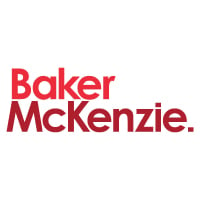

General Counsel & Corporate Secretary, Citi Switzerland / Legal Cluster Head, Citi Switzerland, Monaco & Liechtenstein | Citigroup




Marc P. Leuzinger
General Counsel & Corporate Secretary, Citi Switzerland / Legal Cluster Head, Citi Switzerland, Monaco & Liechtenstein | Citigroup
How do you approach managing legal aspects during periods of instability or crises, and how does your legal strategy align with the broader business strategy to ensure the organisation’s resilience?
During periods of instability or crisis, the legal function is a vital strategic partner to the management. Our core responsibility involves assessing rapidly evolving legal and regulatory requirements, which can shift with little notice, and translating them into clear, actionable risk assessments. These assessments are crucial for enabling informed and compliant decision-making.
Local or global uncertainties highlight the imperative for legal teams to be exceptionally flexible and agile. Understanding the organisation’s business strategy and resilience plans in detail is essential. This knowledge allows us to effectively convert new or amended laws and regulations into meaningful, actionable guidance that directly supports management.
Therefore, the continuous involvement of the legal department in all aspects of organisational resilience planning is instrumental. This proactive engagement ensures a robust framework for preparedness, enabling Citi to navigate potential periods of instability or crises effectively, maintain compliance, and protect its clients’ and its own interests.
What are the main cases or transactions that you have been involved in recently?
As General Counsel, I spearheaded the Swiss aspects of a complex strategic project involving the divestiture of a business line, including two Swiss subsidiary legal entities. This initiative, while crucial for streamlining Citi’s operations, presented several legal challenges. A core component involved navigating intricate employment law considerations for all the affected employees, including transfer to a new group structure, pension plan related questions, and ensuring compliance with applicable local labour laws.
Simultaneously, I led regulatory notifications and implemented the required changes, engaging proactively with the applicable authorities to secure necessary approvals and avoid delays. My responsibilities also extended to ensuring stringent compliance with all data protection and privacy requirements, particularly concerning the transfer and handling of confidential client data. My role encompassed drafting internal and external documentation, ensuring robust local governance, and coordinating with internal teams and external counsel to guarantee a seamless and legally sound transaction.
How is your in-house legal function strengthening corporate governance in response to evolving expectations around transparency, accountability, and stakeholder engagement in Switzerland?
As general counsel I directly assist management and the board of directors in navigating and complying with Switzerland’s evolving regulatory landscape. Together with my team, we ensure enhanced corporate governance by advising on the best practices for transparency, helping to proactively disclose relevant information. We bolster accountability by guiding the implementation of robust internal controls and ethical guidelines. Furthermore, we facilitate meaningful stakeholder engagement, ensuring the Board’s decisions reflect broader considerations while strictly adhering to all applicable laws and regulations.
With new ESG disclosure rules and EU supply chain due diligence standards affecting Switzerland, how is your legal team integrating sustainability into governance and daily operations, and what role does the general counsel play in shaping corporate strategy?
Addressing new ESG disclosure requirements in Switzerland, our team is actively involved in integrating sustainability into our daily operations and drafting the related client documentation. We provide critical guidance to internal project teams, developing robust frameworks for accurate ESG reporting, and embedding sustainable practices throughout the organisation. The overall role of the legal function is pivotal in shaping corporate strategy by advising on the legal implications of these evolving ESG trends, translating regulatory requirements into actionable policies and processes, and ensuring our operations not only comply but also align with global sustainability expectations.
What do you see as the major legal challenges for businesses in Switzerland over the next five years, and how are you preparing to address them?
Over the next five years, major legal challenges for Swiss businesses will likely revolve around escalating global regulatory complexity, particularly in areas like data governance, cybersecurity, and evolving ESG disclosure standards. The rapid adoption of AI also presents significant legal frontiers in terms of intellectual property, liability, and ethical use. Our legal team is preparing by proactively monitoring legislative developments, investing in specialised training for our legal professionals, and integrating advanced legal technology to enhance compliance monitoring and risk management, ensuring we can strategically guide the business through these complex shifts.